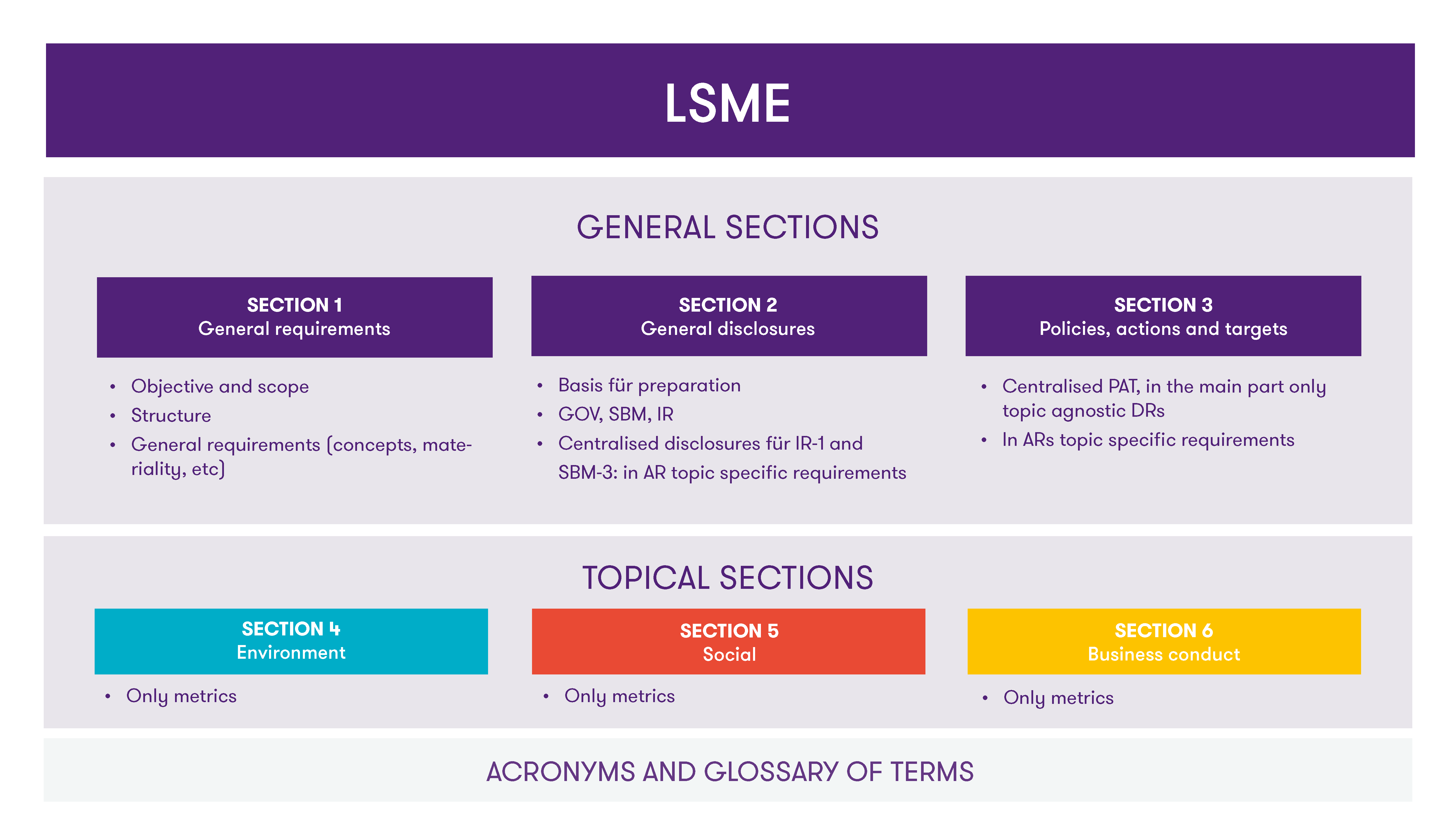-
Corporate Tax
We are your problem solvers for corporate tax issues
-
Restructuring, Mergers & Acquisition
Expertise and creativity for the perfect structure
-
International Tax
We are here, whenever our clients require our assistance
-
Transfer pricing
We are your experts for an optimal transfer pricing structure
-
Indirect Tax & Customs
We take care of your indirect taxes so you can take care of your business
-
Private Wealth
We are your competent partner in the field of Private Wealth Tax Services
-
Real Estate Tax
We are a valuable partner at every stage of your property's life
-
Global Mobility Services
Local roots and global networking as a secret for successful assignment management
-
Advisor for Advisor
As advisors for advisors, we support in complex situations
-
Accounting & Tax Compliance Services
Grant Thornton Austria - Your Partner for Experts for Accounting & Tax Compliance Services. In an evolving regulatory landscape, efficient accounting, tax compliance, and financial statement preparation processes are crucial for maintaining an accurate and up-to-date view of your company’s financial position while ensuring compliance with all legal requirements. We provide tailored solutions that not only save your time and resources but also ensure compliance with complex regulations. Our experts are here to support you, allowing you to focus on your core business.
-
Payroll & People Advisory Services
Ensuring Compliance, Efficiency, and Strategic HR Solutions In an evolving legal landscape, it is crucial for companies of all sizes to have efficient and legally compliant payroll accounting systems. The ever-changing regulations and increasing complexity make this an ongoing challenge. At Grant Thornton Austria, we provide comprehensive, precise payroll processing as part of our Payroll & People Advisory Services. Additionally, we offer customized advisory services to help clients optimise their HR strategy, improve operational efficiency, and minimize potential risks.
-
Tax Controversy Services
Your Partner when it matters most! In increasingly complex environment and considering frequent changes in tax regulations, businesses are facing intensified scrutiny from tax authorities. This has resulted in a significant rise of complex tax audits, investigations and potential disputes. Our Tax Controversy Services are tailored to help you navigate these challenges proactively and effectively. Our experts will guide you through all stages of tax proceedings, ensuring robust defence of your position and advising you on preventive measures to minimize the risk of future tax disputes.
-
Tax Technology Services
Your digital partner for an efficient future! In an increasingly digitalised business world, companies must constantly look for optimisations and adjustments to ensure their long-term success. In order to best prepare for the future and to achieve efficiency increases and process optimisations in the digital area, the experts at Grant Thornton Austria are at your side as a reliable partner as part of our Tax Technology Services.
-
Audit of annual and consolidated financial statements
We place particular emphasis on customized solutions and international service and adapt our services to your needs.
-
Assurance related advisory services
Assurance related advisory services are based on the knowledge and expertise that are the staff of life of our auditors.
-
Global audit technology
We apply our global audit methodology through an integrated set of software tools known as the Voyager suite.
-
Accounting related consulting
Accounting in accordance with UGB, US-GAAP or IFRS is in constant motion. The integration of new regulations into their own accounting systems poses special challenges for companies.
-
Valuation
Valuations are a core competence of Grant Thornton Austria. As auditors and tax advisors we combine profound know-how with our practical experience to offer you customized solutions for your valuation assignment. Our industry expertise is based on years of services to our clients, including listed companies as well as owner-managed companies with an international focus. We advise on valuation matters related to arbitration and provide expert opinions.
-
Forensic Services
When it comes to risks in business, our experts are on hand. We support you not only in suspicious cases or in disputes, but also develop suitable strategies in the area of prevention to avoid serious cases as far as possible. Our Cyber Security team helps you to keep your networks and applications secure and is quickly on hand in the event of a security leak.
-
Cyber Security
Cyber incidents, IT system failures, the resulting business interruptions and the loss of critical data are one of the greatest business risks for companies. Recent cases underline the need for strategic protection and awareness of the issue and require a holistic approach and technical expertise that takes into account all legislative, regulatory and technical aspects of cyber security to protect companies against the daily increase in cybercrime incidents.
-
Sustainability Services
Sustainability is no longer a trend, but the only way to create a future worth living. Our experts will support you in successfully developing your sustainability strategy and preparing your sustainability reporting in compliance with regulations.
-
Transaction Support
We can support you throughout the transaction process – helping achieve the best possible outcome at the point of the transaction and in the longer term.
-
Merger & Acquisition
Companies start new activities and separate from old ones, cooperate and merge. Markets and competitive conditions are subject to constant and increasingly rapid change. As a result, existing business models are changing. Some companies have to restructure and reorganize. But new business opportunities also open up.
-
Restructuring & Going Concern Forecast
Restructuring & Going Concern Forecast: Bundled services for your strategic, operational and financial decisions offer the right answers for companies, banks, shareholders and investors.
-
Internal Audit
Internal Audit helps companies and organisations to achieve their goals by analysing and evaluating the effectiveness of risk management, controls and management and monitoring processes. Internal Audit focuses on independent and objective audit (assurance) and consulting services that improve the value creation and business activities of your company.
-
Expert dispute resolution & advisory
Grant Thornton Austria offers comprehensive services in the field of business-oriented expert services with a broad range of competencies from banking to communication. The core activity of experts is the objective recording of findings and the preparation of expert opinions - regardless of all external circumstances. Our experts Gottwald Kranebitter and Georg H. Jeitler, as sworn and court-certified experts, ensure that the highest professional standards and the principle of objectivity are observed.
-
Blockchain and Crypto-Asset
Blockchain as a carrier technology for crypto currencies and smart contracts, among other things, is becoming increasingly important. Grant Thornton Austria offers comprehensive audit and confirmation services for block chain technologies and business models.
-
International Project Coordination
Our International Engagement Management team is your central point of contact for international projects in all our service lines. We take care of operational project management for you and act as a central point of contact and coordination for your projects. We support companies that start international projects from Austria as well as companies from abroad that want to gain a foothold in Austria or use Austria as a hub for their international projects, especially in the DACH (Germany, Austria and Switzerland) and CEE region.
-
International Desks
As a member of the Grant Thornton network, we guarantee direct access to resources from our worldwide circle of partners. This global connection enables us to seamlessly integrate highly qualified specialists and industry experts from different countries around the world into our teams. Through our broad perspective and diverse expertise, we ensure that we can optimally meet the individual requirements of our clients in an increasingly globalised economy.

Sustainability reporting standards for SMEs
At present, SMEs are not required to provide a sustainability statement under CSRD. Capital market-oriented SMEs will be affected starting from 2026, while non-capital market-oriented SMEs are not required to report. In both cases, however, it can be assumed that large companies, as part of the value chain, as well as investors, will demand sustainability information from them. To support SMEs, the European Financial Reporting Advisory Group (EFRAG) has developed ESRS LSME and ESRS VSME specifically for SMEs, which have now been released in draft form. The SME standards consist of ESRS LSME (standard for "Listed Small- and Medium-Sized Enterprises") for capital market-oriented SMEs and ESRS VSME ("Voluntary" standard for "Small- and Medium-Sized Enterprises") for non-capital market-oriented SMEs. While the ESRS LSME standard will be mandatory for capital market-oriented SMEs and will be incorporated into a legal act, the ESRS VSME standard is a voluntary standard that will not be issued as a legal act. What both standards have in common is the consideration of the principle of double materiality.
The consultation for both standards drafts run until 21 May 2024.
ESRS for capital market-oriented SMEs (LSME)
The draft ESRS LSME sets out reporting requirements for SMEs whose securities are traded on a regulated market and are subject to CSRD from the financial year 2026, or from the financial year 2028 (with an "opt-out option"). This standard is particularly relevant as it establishes, according to Article 29b(4) of the CSRD, the upper limit of information that large companies can demand from SMEs in the area of sustainability. ESRS LSME is intended to enable reporting of relevant information with reasonable effort, taking into account the capacities and characteristics of companies in value chains as well as the scope and complexity of their activities.
Compared to the ESRS for large public-interest entities ("ESRS Set 1”), the ESRS LSME draft provides for simplifications and aims for a balance between reasonable reporting requirements for SMEs and the information needs of investors and companies in the downstream value chain. The draft ESRS LSME comprises three overarching areas ("General Requirements", "General Disclosures" and "Policies, Actions and Targets") and three sections for metrics relating to environmental, social and governance ("ESG").
Structure of the standards for capital market-oriented SMEs

Source: EFRAG. 2024 ESRS LSME ED Basis for conclusions. Structure of the ESRS LSME ED, p.12
Voluntary ESRS for non-capital-market-oriented SMEs (VSME)
The draft of the voluntary ESRS VSME provides a simplified reporting format to assist non-capital market-oriented micro, small and medium-sized enterprises in starting sustainability practices and efficiently and proportionately responding to requests for sustainability information. The aim is to support SMEs in preparing sustainability data and to achieve standardization in requests from business partners. The draft voluntary standard consists of a mandatory basic module for all users and two additional optional modules ("Narrative Policies, Actions and Targets (PAT)" and "Business Partners"). The Business Module is intended for SMEs to uniformly and in a standardized manner respond to inquiries from their business partners.
What does this mean for companies and what needs to be done?
With the publication of the drafts of the ESRS LSME and ESRS VSME, it becomes clearer what reporting requirements the CSRD places on SMEs and enables greater standardization of sustainability information, even for small and medium-sized enterprisesEngaging with the LSME standard is of great relevance for both SMEs and large public-interest entities, as it sets the upper limit for sustainability-related enquiries to small and medium-sized enterprises. Therefore, we recommend non-capital market-oriented SMEs to familiarize themselves with both the ESRS VSME and the ESRS LSME. Although the ESRS VSME remains voluntary according to current information, and the future extent of its future application is uncertain, this standard provides a guide for structuring and facilitates the preparation of sustainability information.
After the consultation period ends in May 2024, the adoption of ESRS LSME as a delegated act is expected. It is anticipated that ESRS VSME, while not binding as a legal act, will be finalized in parallel. Until then, companies should monitor the further development of the standard-setting process, in particular the results of the public consultation.
For further information on these standards and support with CSRD-compliant sustainability reporting, Grant Thornton is available as a contact partner.
